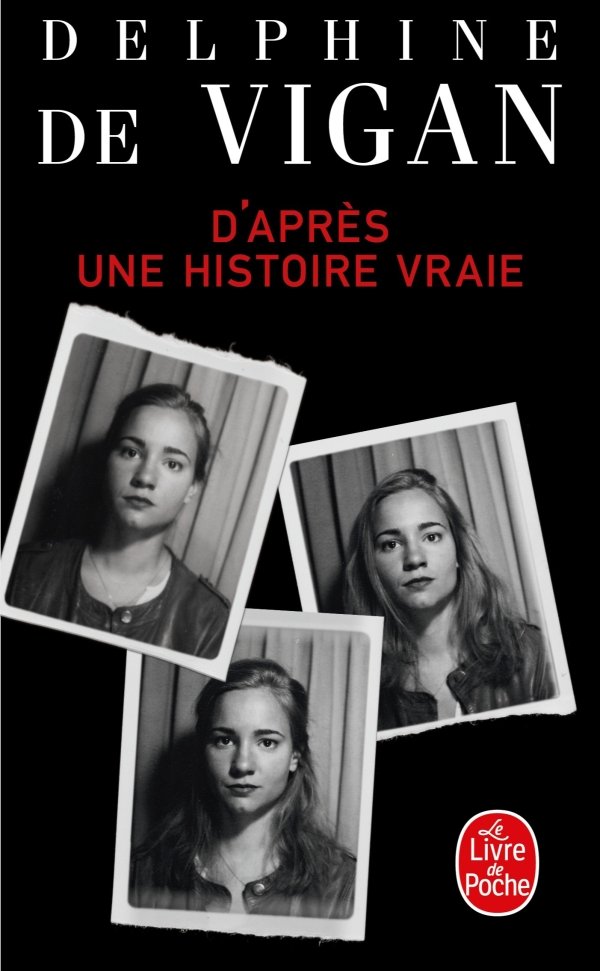
Delphine de Vigan, D’après une histoire vraie
After the immense success of her first novel, Delphine is fragile, she is impressed by her own literary success, lacks confidence and struggles to write. She soon receives anonymous letters accusing her of having done a lot of harm around her with her previous novel. In the midst of a loss of legitimacy and a vocational crisis, she meets L. (“elle”), a dynamic and fascinating young woman who introduces herself as one of her most ardent readers. They bond and create a strong friendship without Delphine suspecting any ill intent on L.'s part. Soon, however, L. becomes more insistent and forces her to write the book that L. wants to read. Her ascendancy grows like a spider spinning its web, until it becomes suffocating, oppressive and clearly threatening.
Published in 2015, D’après une histoire vraie received the prestigious Prix Renaudot and the Goncourt des lycéens and was a great popular success. It was adapted to the cinema in 2017 by Roman Polanski. A psychological thriller that unpacks a relationship of control that is both disturbing and complex, the novel plays on the relationship between reality and fiction and evokes the ever-increasing fascination of our contemporary world with “the real thing” or anything that is “based on a true story”.
We read this book in the spring of 2021.